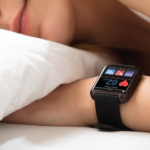Karandeep Singh, MD, is a fellow in Nephrology at Brigham and Women’s Hospital and a graduate student in Biomedical Informatics, Harvard Medical School, Boston. He is the developer of Brigham and Women’s Hospital’s electronic health record prototype for Google Glass.
Gunnar O. Klein, MD, PhD, is a professor in Health Informatics at the Center for Empirical Research on Information Systems, Örebro University School of Business, Örebro, Sweden. He is also affiliated with NTNU, the Norwegian University of Science and Technology, Trondheim. Klein is partly practicing as a primary care physician in Stockholm.
Johan von Heideken, MD, PhD, is a pediatric orthopedic surgeon at Astrid Lindgren Children’s Hospital and affiliated with Department of Women’s and Children’s Health, Karolinska Institutet, Stockholm, Sweden. He is currently working on a project, Google Glass and Medical Education, as a postdoc fellow at the Department of Physical Therapy, Movement and Rehabilitation Sciences, Northeastern University, Boston. He is also a visiting scholar at Clinica de Traumatologia y Ortopedia Pediatrica, Universidad del la Republica, Facultad de Medicina, Montevideo, Uruguay.
References
- Google Glass: Tech specs. https://support.google.com/glass/answer/3064128?hl=en. Accessed Aug. 6, 2014.
- Join the Glass Explorer Program. http://www.google.com/glass/start/how-to-get-one. Accessed Aug. 6, 2014.
- Wasik B. Why wearable tech will be as big as the smartphone. Wired. Dec. 17, 2013. http://www.wired.com/2013/12/wearable-computers/all. Accessed Aug. 6, 2014.
- Ryan J. Google Glass challenge: Finalist presentations and expert panel. MedTech Boston. April 23, 2014. http://medtechboston.medstro.com/events/ggc-finals. Accessed Aug. 6, 2014.
- Wearable technology in healthcare society. http://www.watch-society.com. Accessed Aug. 6, 2014.
- Google Glass in the clinical setting. Dignity Health. http://www.dignityhealth.org/Video/GLASS. Accessed Aug. 6, 2014.
- Joe JM. BWH Google Glass: The radically reinvented wearable EHR! MedTech Boston. April 21, 2014. http://medtechboston.medstro.com/bwh-google-glass-the-radically-reinvented-wearable-ehr. Accessed Aug. 6, 2014.
- Peregrin T. Surgeons see future applications for Google Glass. Bull Am Coll Surg. 2014 Jul;99(7):9–16.
- Whitaker M, Kuku E. Google Glass: The future for surgical training? Ann R Coll Surg Engl (Suppl). 2014 Jul;96(7):223–223.
- Vallurupalli S, Paydak H, Agarwal SK, et al. Wearable technology to improve education and patient outcomes in a cardiology fellowship program—A feasibility study. Health Technol. 2013;3:267–270.
- Muensterer OJ, Lacher M, Zoeller C, et al. Google Glass in pediatric surgery: An exploratory study. Int J Surg. 2014;12(4):281–289.
- Albrecht UV, von Jan U, Kuebler J, et al. Google Glass for documentation of medical findings: Evaluation in forensic medicine. J Med Internet Res. 2014 Feb 12;16(2):e53.
- Armstrong DG, Rankin TM, Giovinco NA, et al. A heads-up display for diabetic limb salvage surgery: A view through the Google looking glass. J Diabetes Sci Technol. 2014 May 18; pii: 1932296814535561. [Epub ahead of print].
- Spencer RJ, Chang PH, Guimaraes AR, et al. The use of Google Glass for airway assessment and management. Paediatr Anaesth. 2014 Sep;24(9):1009–1011.
